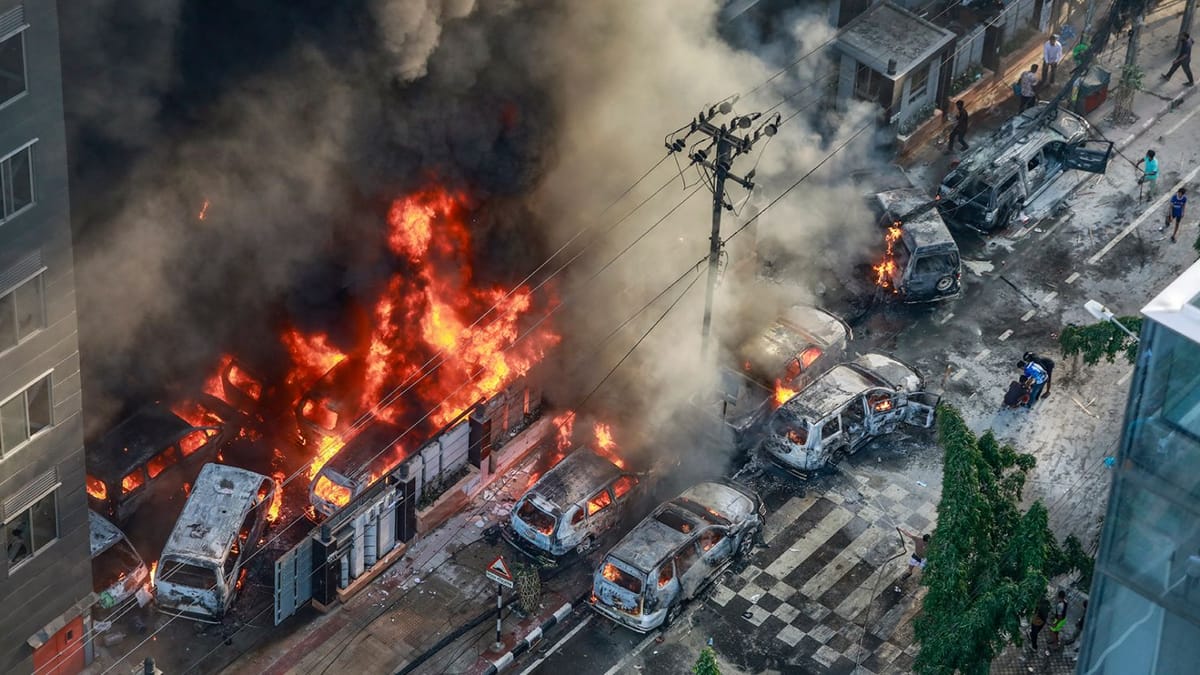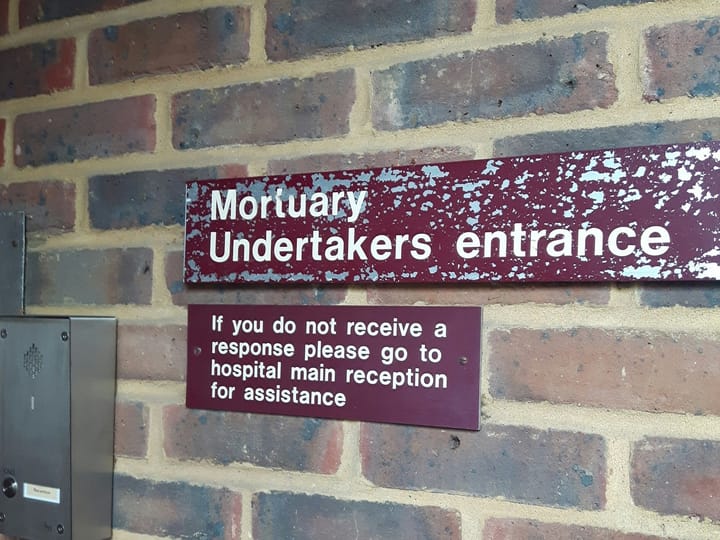IN BRIEF: Bangladesh in Turmoil: Student Protests Ignite Nationwide Unrest Over Job Quotas
Violent student protests in Bangladesh over job quotas for war veterans' descendants have resulted in over 100 deaths and thousands injured, prompting a national curfew and military deployment.

Bottom line up front
- Violent clashes in Bangladesh over job quota system result in over 100 deaths and thousands injured.
- Students demand merit-based employment, rejecting the reinstated job quota for descendants of freedom fighters.
- Government enforces national curfew and deploys military, suspending internet to control escalating protests.
- Malaysia's Ministry of Foreign Affairs is actively evacuating Malaysian students from Bangladesh and coordinating with local authorities to ensure their safety amid escalating protests.
Overview
Bangladesh has issued a high-security alert following violent clashes between students and police. On Thursday (July 18), protesters stormed the state broadcaster BTV, vandalising and setting parts of it on fire, forcing broadcasts to stop and employees to evacuate. Prime Minister Sheikh Hasina called for calm following days of violent protests over a job quota system. Violent clashes have resulted in at least 105 deaths and thousands of injuries, prompting the government to enforce a national curfew and deploy the military. The students are demanding an end to the system reserving public sector jobs for war veterans' relatives, arguing it is discriminatory and should be merit-based.
The crisis
The primary trigger for the violence was the High Court's decision to reinstate the 30 percent job quota for relatives and descendants of veterans from the 1971 war for independence from Pakistan. Many students and protesters viewed this system as benefiting a small, politically-connected group, causing widespread dissatisfaction among the broader student population. The economic downturn following the COVID-19 lockdowns intensified the situation, as limited job opportunities made government jobs more desirable due to their stability and benefits. Additionally, political tensions were exacerbated by accusations that Hasina's ruling Awami League used the quota system to sustain political support, while opposition parties allegedly backed the protests for political leverage.
Current situation
On Thursday, internet and text message services were widely disrupted, effectively isolating Bangladesh from the world as police intensified their crackdown on protests despite a ban on public gatherings. The following day, the government imposed a nationwide telcommunications blackout, suspending internet service to further control the unrest. Bangladeshi soldiers are patrolling Dhaka's deserted streets under a curfew that came into effect early Saturday (July 20) to quell deadly student-led protests against government job quotas, which have resulted in over 100 people this week.
Evacuation efforts by Wisma Putra
Malaysia's Ministry of Foreign Affairs (MOFA; Wisma Putra) claimed to be actively evacuating four Malaysian students from Bangladesh amid escalating protests that have claimed nearly two dozen lives this week. As of 1600 hours MYT today, the ministry reportedly confirmed the safety of all 95 Malaysian students in Bangladesh and stated it is diligently monitoring the situation. Wisma Putra announced that they were coordinating with local authorities to ensure the students' safety and exploring solutions such as travel arrangements and temporary shelters. However, subsequent statements from students who appeared to still be trapped contradicted these official claims, highlighting a discrepancy in Wisma Putra's response and raising concerns about the ministry's effectiveness in managing the crisis.*
Why it matters
The unrest in Bangladesh highlights the flashpoint of socio-economic and political tensions that have long been simmering beneath the surface. The current crisis is primarily driven by the reinstatement of the job quota system for the descendants of freedom fighters, which many view as discriminatory and outdated. This has ignited widespread dissatisfaction among students and the broader population, who argue that employment opportunities should be based on merit and relevant socioeconomic qualifiers rather than legacy.
This latest incident underscores the importance of enhancing crisis management and evacuation protocols in the face of unforeseen situations. Drawing from lessons learned during the Kyiv crisis following Russia's invasion in 2022, it may be prudent to regularly review and potentially adjust the resources allocated for such emergencies for adequate consular support. Given the prevailing geopolitical uncertainties, improving projections can help avoid strategic surprises and ensure a more proactive response to future crises.
*Updated to reflect situation on the ground.



